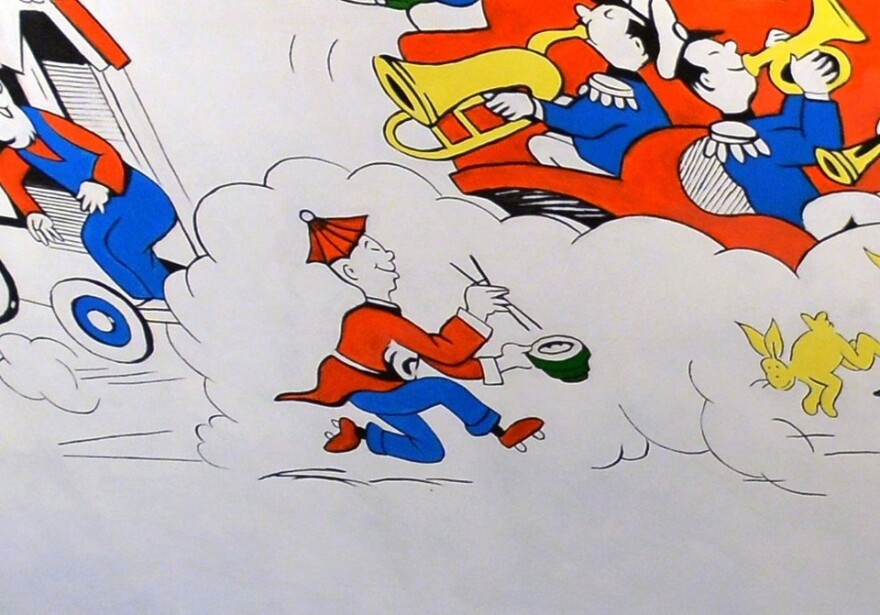Facing increasing pressure for how it's chosen to handle the legacy of a children's book author with a mixed record on issues of race and prejudice, the new Dr. Seuss Museum in Springfield, Mass., has acknowledged a change is needed.
The museum will remove a mural, painted to replicate a scene from "And to Think That I Saw It on Mulberry Street." Published in 1937, it was the first children's book from Seuss, whose real name was Ted Geisel. The mural -- and Geisel's book -- contain a caricature of a Chinese man.
On Thursday, three well-known children's book authors issued a scathing public letter about the depiction, calling it a "jarring racial stereotype... with chopsticks, a pointed hat, and slanted slit eyes."
"We find this caricature of 'the Chinaman' deeply hurtful, and have concerns about children's exposure to it," wrote Mo Willems, Mike Curato and Lisa Yee.
The authors said that at the very least, the museum needed to "provide context for this hurtful painting."
Just last week, the authors were announced as the featured guests at a Children's Literature Festival at the Seuss Museum, to be held Oct. 14. They said in their letter that they recently learned of the mural, and would no longer be attending the event.
By mid-afternoon, the website for the Springfield Museums said the festival had been cancelled. At the time, it also appeared that the museum was holding firm on the mural.
In a series of emails and statements, a museum spokesperson said its leadership had tried to meet with the authors about their concerns, but they declined.
"As a museum, we do not alter or edit an artist’s work," read a statement, in part. "We are presently exploring ways to help guide parents and teachers in addressing this issue with children and pupils."
That last line was an indication the museum was looking for ways to add context to the mural, as requested by the kids' book authors. But by the evening, museum officials had decided to drop the mural altogether.
A statement sent after 6 p.m. Thursday by a spokesperson for Dr. Seuss Enterprises noted that Geisel's professional evolution was marked by "early works containing hurtful stereotypes" and later ones containing "lessons of tolerance and inclusion."
"It is in that spirit that Dr. Seuss Enterprises and the Springfield Museums listened to the concerns voiced by the authors and fans and have made the decision to take down the Mulberry street mural...and replace it with a new image that reflects the wonderful characters and messages from Dr. Seuss’s later works," it read. "This is what Dr. Seuss would have wanted us to do."
A spokesperson for Dr. Seuss Enterprises did not immediately know when the change would occur, or whether the current mural would remain on display in the meantime.
This disagreement with Willems, Curato and Yee follows separate criticism of the museum's failure to acknowledge some of Seuss' other controversial work.
During World War II, Geisel drew political cartoons, including of the Japanese. They are now thought to be blatantly racist, and are nowhere to be found in the museum.
Scholars who have studied Geisel's life and works, including Philip Nel at Kansas State University and Donald Pease at Dartmouth College, have said the exhibit should be more transparent about the author's full resume. Doing so responsibly, they said, can demonstrate how some of his later kids' books were acts of contrition for his earlier cartoons.
New England Public Radio's Alden Bourne contributed to this report.




